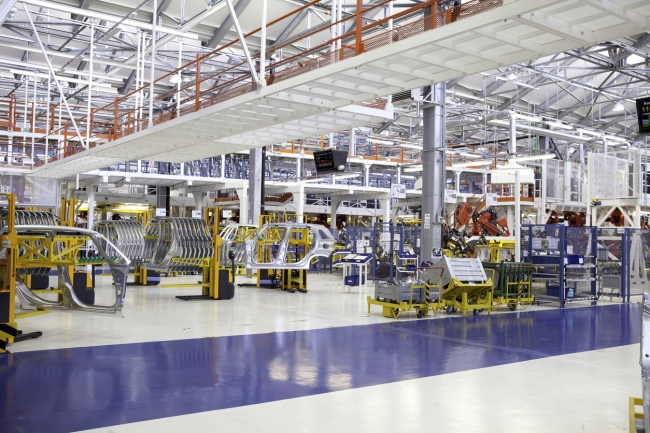3 minute read
UK manufacturing climbs to four year high
UK manufacturing has grown to new heights throughout November. The latest IHS Markit/CIPS Manufacturing Purchasing Managers’ Index (PMI) posted an impressive 58.2 for November, up from the final figure of 56.6 in October and representing the strongest result for over four years. Once again, UK industry defies the doom and gloom with its growth and progress.
While cost pressures continue to rise at the highest for over six months, the UK manufacturing sector has seen marked growth in employment, output and new orders. This has improved overall confidence across the sector, with more than 50% of UK manufacturers surveyed anticipating increased production and growth in the year ahead. Orders of investment goods have increased at the most rapid rate for 23 years.

UK Manufacturing PMI hits the highest level since November 2013 / Picture: Getty/iStock
Production on the up
UK manufacturing production is growing the fastest for over a year and has increased to the highest rate for four years. Strong demand, both domestically and internationally, has led to increased flow of new orders and a solid order book.
Increasing exports, new territories
Higher sales were recorded to Europe – despite the Brexit uncertainty – as well as the US and South America, Asia Pacific and the Middle East. The weaker Pound since the EU Referendum vote has helped increase export competitiveness, although volatile currency markets have meant this is not as pronounced as earlier in 2017.
Cross-sector expansion
New orders increased across consumer, investment and intermediate sectors, with investment goods orders at 23-year highs.
Employment growth
Jobs growth for the sector has risen to the highest for three and a half years. Backlogs of work have increased in November, as growing demand has led to the need to grow workforces.
Cost pressures continue
Buying costs have gone up at a similar level to that seen in October, which was a seven-month high, as commodity pricing soars and exchange rates remain volatile. These have pushed up vendor prices and increased pressures across the supply chain.
Output charges have in turn also gone up at a significant rate, the highest for six and a half years and again rising the quickest for seven months. Increased demand has helped improve pricing power and manufacturers have been able to pass on the increased costs to customers.
David Johnson, founding director at currency specialist, Halo Financial, said: “UK manufacturers are defying the general mood of doom and gloom and ongoing political uncertainty by growing and improving across the board and contributing a substantial lift to the UK economy. A great end to the year, long may it continue.”
Atul Kariya, manufacturing sector head at accountancy firm MHA MacIntyre Hudson, added, “It is clear that businesses in the sector have taken steps to improve efficiencies and counteract cost and economic pressures through investment in their workforces, equipment, international expansion and overall business growth.
“By careful forward planning and future proofing business strategies, the sector appears to be flying the flag for UK industry in the face of ongoing uncertainty. We hope to see more of this in the year to come.”
Dorrien Peters, Head of Manufacturing at Irwin Mitchell, concluded: “This is clearly a positive result for the sector and looks to put manufacturing in a strong position for the start of 2018.
“Whilst the Government’s Industrial Strategy White Paper is to be welcomed, the crucial test for the sector in the next 12 months and beyond however will be Brexit. Although the sector has been resilient to the uncertainty so far, the priority in 2018 is for a breakthrough in EU negotiations in order to establish whether a meaningful trade deal is possible and allow the sector to plan accordingly.”